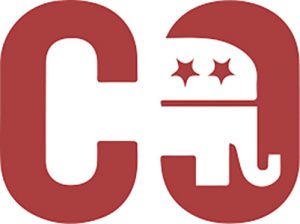by Carla Dolce
HUERFANO- In this fourth and final segment on health care reform, we look at some health care reform options. Nearly everyone agrees our system needs major reforms. But, there is substantial disagreement on what those reforms should look like. The primary disagreement revolves around private health insurance. Should it be eliminated, deregulated or mandated?
A universal single-payer system, like that in Canada, would eliminate private, for-profit health insurance and would put the U.S. in line with every other industrialized country in the world, all of which have mandatory coverage with benefits administered by the government or nonprofit, government-regulated entities. Eliminating private insurance leaves medical decisions strictly between patients and their doctors. It also eliminates middle-man profits and administrative costs, which presently bleed our system of 31 cents for every dollar spent.
Advocates of a single-payer system compare our 31% administrative costs to Canada′s 16.7%. The Blue Ribbon Commission′s final report released earlier this year shows that Coloradoans would save $1.4 billion annually on health care spending with a single-payer system while providing universal coverage. On the federal level, Rep. John Conyers (D.MI), says his national single-payer bill now pending in Congress (HR 676, “Medicare for All”) will provide health coverage to every American at a cost no greater than what we now pay. This is possible not only due to deceased administrative costs, but also because the risk of illness is spread among more people than any other other system. The more people who pay into the system, the less each has to pay.
The Aurora, Colorado-based organization, Freedom and Individual Rights in Medicine (FIRM), demonizes single-payer health care as “socialized medicine” and promotes a free-market solution based on individual rights and personal responsibility. Under this system, there is no government regulation. Insurance companies and medical providers charge whatever people are willing to pay and refuse coverage or services on any basis. Christian Care Medi-Share is the closest thing to free-market insurance. It looks like insurance (monthly payments, co-pays, deductibles, etc.), but avoids government regulations by using a disclaimer and not using insurance terminology. Since Medi-Share is not regulated, it can – and does – exclude from coverage diseases resulting from an “unbiblical” lifestyle such as emphysema from smoking. You can become a Medi-Share member only if you′re a Christian and you don′t smoke, abuse alcohol, use illegal drugs or “practice gluttony” (you′re obese).
By excluding coverage for pre-existing conditions and covering only people living healthy lifestyles, costs under Medi-Share are a fraction of what they are under regulated insurance. Mary Glidden, who has a booth at Antique Ave. in Walsenburg, pays only $246/month for her Medi-Share membership. A Medi-Share member under 40 with a $250 deductible plan pays only $121/month. Compare this to the $464/month paid by Huerfano County per employee in 2007.
For those living a less-than-biblical lifestyle, there′s no need to get excited about universal single-payer reform or worried about free-market reform. Neither is likely to be implemented any time soon. While Senator McCain talks about individual responsibility and free markets, his health care reform proposal is more like a bag of bandaids. It includes proposals to reduce insurance regulation by allowing insurance to be sold across state lines. It also provides tax incentives for moving the health insurance burden from businesses to individuals including a tax credit for individuals. It requires workers to pay tax on the value of employer-provided insurance.
Senator Obama′s proposal, a bag of different and perhaps bigger bandaids, includes creating a new publicly-administered health plan and expanding SCHIP and Medicaid. Obama would create a National Health Insurance Exchange through which small businesses and individuals without access to other programs or coverage could enroll in the new public plan or in an approved private plan. His plan mandates health insurance for children and provides subsidies for families that can′t afford it.
It′s unlikely that either Obama or McCain′s reform plans will be implemented before the Colorado General Assembly enacts the mandatory insurance program recommended by the Blue Ribbon Commission. On June 3, Governor Ritter signed into law S.B. 217 that creates the necessary infrastructure including a basic health plan called the Centennial Care Choices Plan. Full implementation may be less than two years away. Once implemented, noncompliance could result in stiff penalties as high as a year′s worth of insurance premiums. Government subsidies will be available for those unable to buy insurance according to income guidelines set by the state. The Blue Ribbon Commission estimates this insurance mandate will increase health care spending in Colorado by $1.1 billion each year.
What′s best for Huerfano County? Single-payer with adequate provider reimbursements administered through a quasi- governmental entity (autonomous from the government) would provide health care benefits to everyone and breathe vitality into our local hospital by eliminating bad debt, Medicare and Medicaid write-offs. Undoubtedly, if this system could be implemented, it would benefit the majority of Huerfano County′s residents. Can it be done? Did we put a man on the moon?
If you don′t have faith in American′s ability to implement a single-payer system at least as good as that in other industrialized countries or if you′re healthy, young, don′t trust government, or don′t want to subsidize those with unhealthy lifestyles, you may favor a free-market solution. If the status quo is working well for you, mandatory insurance may be your preference.
Whatever your opinion, now is the time to express it. Write to your elected representatives before it′s too late to make a difference!




